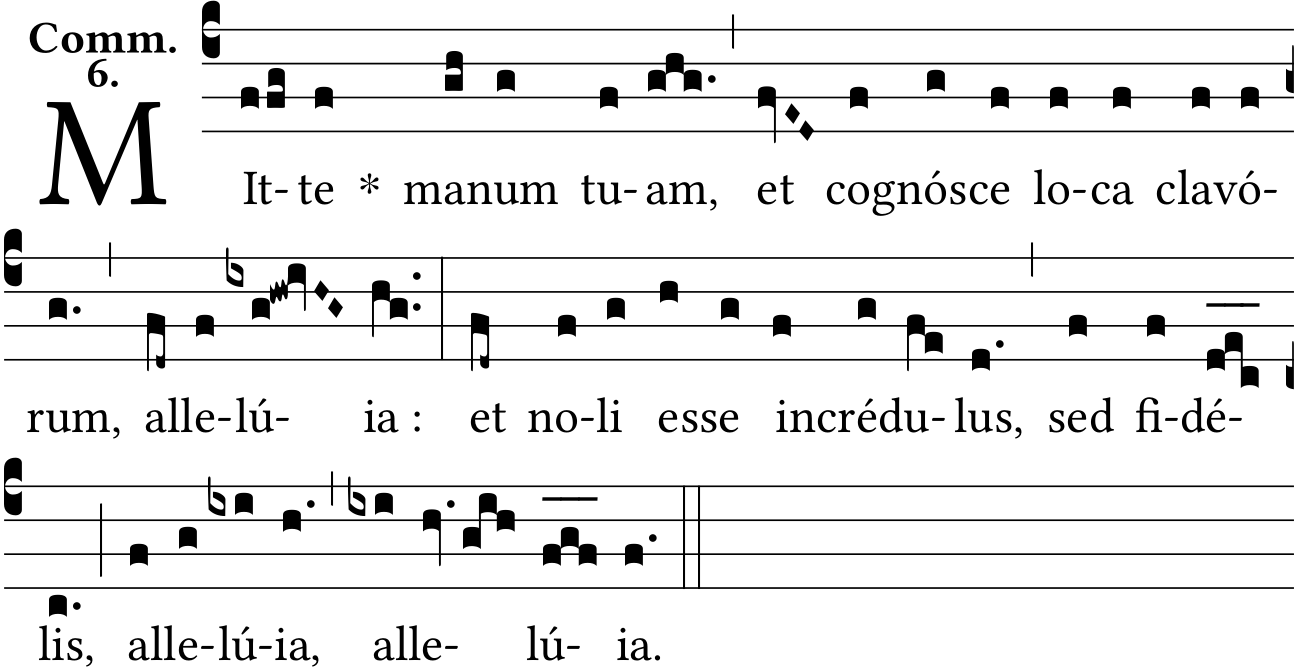Categories
Select Category
Aichinger, Gregor (1564-1628) (1)
Allegri, Gregorio (1582-1652) (1)
Allen, Kevin (1)
Amner, John (1579-1641) (1)
Anerio, Felice (1560-1614) (2)
Anonymous (3)
Arcadelt, Jacques (1505-1568) (1)
Asola, Giovanni Matteo (1532-1609) (2)
Attwood, Thomas (1765-1838) (2)
Bach, Carl Philipp Emanuel (1714-1788) (1)
Bach, Johann Christian (1735-1782) (1)
Bach, Johann Christoph (1642-1703) (2)
Bach, Johann Sebastian (1685-1750) (11)
Bainton, Edgar (1880-1956) (1)
Bairstow, Edward (1874-1946) (4)
Barnard, Richard (b. 1977) (1)
Battishill, Jonathan (1738-1801) (1)
Becker, Dietrich (ca. 1623-1679) (1)
Berger, Jean (1909-2002) (1)
Berkeley, Lennox (1903-1989) (1)
Billings, William (1746-1800) (1)
Blow, John (1649-1708) (4)
Bonhomme, Pierre (1803-1861) (1)
Bouzignac, Guillaume (1587-1643) (1)
Boyce, William (1711-1779) (2)
Brahms, Johannes (1833-1897) (11)
Bruckner, Anton (1824-1896) (4)
Buckley, David (b. 1976) (1)
Buxtehude, Dieterich (c.1637-1707) (6)
Byrd, William (1539/1540-1623) (21)
Callaham, Scott (1)
Calvisius, Sethus (1556-1615) (1)
Campkin, Alexander (b. 1984) (1)
Cardoso, Manuel (1566-1650) (1)
Carissimi, Giacomo (1605-1674) (1)
Carson Cooman (b. 1982) (1)
Casals, Pablo (1876-1973) (2)
Chant (49)
Charpentier, Marc-Antoine (1643-1704) (2)
Chesnokov, Pavel (1877-1944) (2)
Chilcott, Bob (b. 1955) (1)
Childs, David (b. 1969) (1)
Claudio Merulo (1)
Copland, Aaron (1900-1990) (1)
Cotes, Ambrosio (c. 1550-1603) (1)
Courtney, Craig (b. 1965) (1)
Crecquillon, Thomas (1505-1557?) (1)
Creighton, Robert (1639-1734) (1)
Croft, William (1678-1727) (2)
de Layolle, Francesco (1492-1540) (1)
de Monte, Philippe (1521-1603) (3)
de Rore, Cipriano (1515-1565) (1)
de Wert, Giaches (1535-1596) (8)
des Prez, Josquin (c. 1440-1521) (2)
Destremau, Pierre-Arnaud (1928-2004) (1)
di Lasso, Orlando (1532-1594) (7)
Dubra, Rihards (b. 1964) (2)
Dufay, Guillaume (1397-1474) (1)
Dulichius, Philipp (1562-1631) (1)
Dunstaple, John (1390-1453) (1)
Duruflé, Maurice (1902-1986) (2)
Elgar, Edward (1857-1934) (3)
Esquivel, Juan (c. 1560 – after 1625) (1)
Farrant, Richard (c. 1530-1580) (2)
Feroci, Francesco (1673-1750) (1)
Ferrari, Carlotta (b. 1975) (1)
Fischbach, Klaus (1935-2017) (1)
Francisco Antonio de Almeida (1)
Franck, César (1822-1890) (1)
Gabrieli, Giovanni (c.1554/1557-1612) (4)
Gallus/Handl, Jacob (1550-1591) (4)
Galvani, Marco (b. 1994) (1)
Geist, Christian (c1640-1711) (1)
George Dyson (1)
Gesius, Bartholomeus (1555/1562-1613) (1)
Gesualdo, Carlo (1566-1613) (1)
Gibbons, Orlando (1583-1625) (8)
Giovanni Paolo Cima (c. 1570-1610) (1)
Girolamo Frescobaldi (1)
Gombert, Nicolas (c. 1495 – c. 1560) (2)
Goodall, Howard (b. 1958) (1)
Gorczycki, Grzegorz (c.1665-1734) (1)
Goss, John (1800-1880) (3)
Gowers, Patrick (1936-2014) (1)
Greene, Maurice (1696-1755) (1)
Grier, Francis (b. 1955) (1)
Guerrero, Francisco (1528-1599) (2)
Guy de Lioncourt (1885-1961) (1)
Guyot, Jean (1512-1588) (1)
Hadley, Patrick (1899-1973) (1)
Hammerschmidt, Andreas (1611-1675) (1)
Handel, George F. (1685-1759) (62)
Handl, Jacob (1550-1591) (1)
Harvey, Jonathan (1939-2012) (1)
Hassler, Hans Leo (1564-1612) (1)
Haydn, Franz Joseph (1732-1809) (3)
Haydn, Johann Michael (1737-1806) (3)
Hession, Toby (b. 1997) (1)
Holst, Gustav (1874-1934) (1)
Homilius, Gottfried August (1714-1785) (1)
Howells, Herbert (1892-1983) (2)
Hummel, Bertold (1925-2002) (1)
Ireland, John (1879-1962) (1)
Isaac, Heinrich (c. 1450-1517) (2)
Jakobs, Luc (b. 1956) (1)
Jennings, Carolyn (b. 1936) (1)
Keitch, Graham (b. 1956) (2)
Kirbye, George (1565-1634) (1)
Kodály, Zoltán (1882-1967) (1)
Liszt, Franz (1811-1886) (3)
Lobo, Alonso (1555-1617) (2)
Lobo, Duarte (1565-1646) (1)
Locke, Matthew (1621-1677) (1)
Lotti, Antonio (c. 1667-1740) (1)
Lyon, James (1735-1794) (1)
MacMillan, James (b. 1959) (3)
Malotte, Albert Hay (1895-1964) (1)
Manz, Paul (1919-2009) (1)
Martin, Gilbert (b. 1941) (1)
Mason, Lowell (1792-1872) (1)
Mathias, William (1934-1992) (1)
Mealor, Paul (b. 1975) (1)
Mendelssohn-Bartholdy, Felix (1809-1847) (14)
Merula, Tarquinio (1595-1665) (1)
Michael, Tobias (1592-1657) (2)
Mondonville, Jean-Joseph de (1711-1772) (1)
Monteverdi, Claudio (1567-1643) (6)
Moody, Ivan (b. 1964) (1)
Moore, Undine Smith (1904-1989) (1)
Morales, Cristóbal de (c.1500-1553) (1)
Mouton, Jean (c. 1459-1522) (1)
Mozart, Wolfgang Amadeus (1756-1791) (5)
Mui, Esther (1)
Navarro, Juan (1530-1580) (1)
Naylor, Edward Woodall (1867-1934) (1)
Noble, T. Tertius (1867-1953) (1)
Orr, Robin (1909-2006) (1)
Palestrina, Giovanni Pierluigi da (1525-1594) (16)
Park, Owain (b. 1993) (1)
Parry, Charles Hubert Hastings (1848-1918) (1)
Parsons, Robert (1535-1572) (1)
Pärt, Arvo (b. 1935) (7)
Paulus, Stephen (1949-2014) (1)
Peerson, Martin (c1572-1651) (1)
Penderecki, Krzysztof (1933-2020) (1)
Pérotin (1)
Philips, Peter (c. 1560-1628) (4)
Pietro Andrea Ziani (1616-1684) (1)
Powell, Rosephanye (b. 1962) (1)
Praetorius, Hieronymus (1560-1629) (1)
Purcell, Henry (1659-1695) (17)
Rachmaninoff, Sergei (1873-1943) (2)
Rameau, Jean-Philippe (1683-1764) (4)
Randall Goodgame (1)
Reubke, Julius (1834-1858) (1)
Rheinberger, Josef (1839-1901) (4)
Richafort, Jean (c.1480-c.1547) (1)
Rodriguez de Mata, Antonio (1)
Runestad, Jake (b. 1986) (1)
Rutter, John (b. 1945) (6)
Scapin, Massimo (b. 1968) (10)
Scarlatti, Alessandro (1660-1725) (5)
Scheidt, Samuel (1587-1654) (1)
Schein, Johann Hermann (1586-1630) (1)
Schneider, Friedrich (1786-1853) (1)
Schubert, Franz (1797-1828) (3)
Schütz, Heinrich (1585-1672) (16)
Scully, Brian (b. 1992?) (1)
Seeger, Pete (1919-2014) (1)
Serban Nichifor (b. 1954) (1)
Shephard, RIchard (b. 1949) (1)
Sheppard, John (1515-1558) (4)
Stainer, John (1840-1901) (5)
Stanford, Charles Villiers (1852-1924) (11)
Stravinsky, Igor (1882-1971) (4)
Stroope, Z. Randall (b. 1953) (2)
Sumsion, Herbert (1899-1995) (1)
Sweelinck, Jan (1562-1621) (11)
Tallis, Thomas (1505-1585) (11)
Taverner, John (1490-1545) (1)
Telemann, Georg Philipp (1681-1767) (3)
Thompson, Randall (1899-1984) (3)
Todd, Will (b. 1970) (1)
Tomkins, Thomas (1572-1656) (4)
Trombetti, Ascanio (1544-1590) (1)
Tye, Christopher (c. 1505-before 1573) (2)
U2 (1)
Uncategorized (4)
Valls, Francisco (1665-1747) (1)
Van Nuffel, Jules (1883-1953) (1)
Vaughan Williams, Ralph (1872-1958) (3)
Victoria, Tomás Luis de (1548-1611) (8)
Villa-Lobos, Heitor (1887-1959) (1)
Vivaldi, Antonio (1678-1741) (5)
Vivanco, Sebastian de (1551-1622) (1)
Vulpius, Melchior (1570-1615) (2)
Wacław z Szamotuł (c. 1526 – c. 1560) (2)
Wadsworth, Zachary (b. 1983) (1)
Walton, Sir William (1902-1983) (1)
Weelkes, Thomas (1576-1623) (1)
Wesley, Samuel (1766-1837) (1)
Wesley, Samuel Sebastian (1810-1876) (10)
Whitacre, Eric (b. 1970) (1)
White, Robert (1538-1574) (1)
Wise, Michael (1648-1687) (1)
Wood, Charles (1866-1926) (1)
Zelenka, Jan Dismas (1679-1745) (2)
Zielenski, Mikolaj (c. 1585 – after 1611) (2)




